-
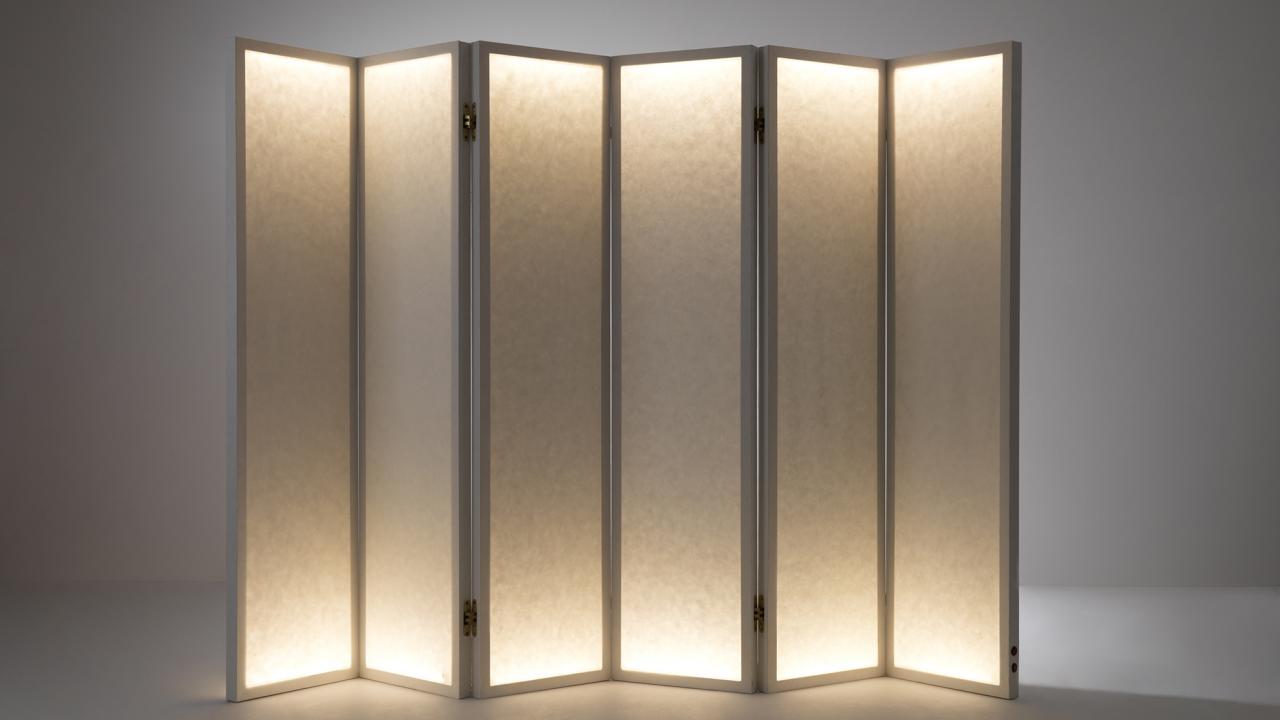
-
Taiho Shin's Experimental Creations
Korean designer Taiho Shin’s Seoul-based studio M.0 specialises in the development and application of new materials. For Shin, being in one of the most creatively exciting countries in Asia has provided a supportive context for his process. ‘I would describe Korea as dynamic,’ he says. ‘For decades we’ve faced many changes in our lives, economically, politically and culturally. Moving toward the future involves change. I think many Koreans are less reluctant when it comes to change than other nationalities, and some even tend to enjoy it. I think that’s what has driven creativity in Korea.’
Shin also points to the fact that Korea’s manufacturing infrastructure is more accessible than in many other countries. ‘In the heart of Seoul there are many manufacturers working directly with designers, and for me that’s very helpful. Prototyping is important in the process of designing, and it’s not only about speed but also quality.’
His recent collection, Ikare, is a series of flat-pack furniture realised in American hard maple. ‘Normally DIY furniture is made with plywood or MDF, with hardwood reserved for crafted pieces,’ he says, explaining his choice of material for the adaptable table and shelving system. The warmth of the material was critical to Shin’s aim of engaging users in the creation of the piece. ‘I wanted to give the user more chances to touch and feel and get involved. Real wood is a good way to do that.’ He designed Ikare’s primary feature, an innovative, sophisticated joint, to allow the user to build a solid, stackable table without the use of any glue. Thanks to the stability of the timber and the precision of the design and manufacturing, the pieces exude quality through simplicity, their intricacy executed seemingly effortlessly.
Fascinated by the interfaces between creator, user and environment, Shin enjoys the challenge of understanding the multifaceted impact of both his process and the resulting objects. For him, this means more time thinking about and researching a project rather than simply ‘drawing and making things’. He believes it’s this balance that defines his process of creation.
Shin continues to run his business as a ‘sort of start-up’, with experimental design and surprising materials at its core. He encourages his clients to think about the role of the materials he uses in his work and thus far, it’s an approach that has served him well.
-
-
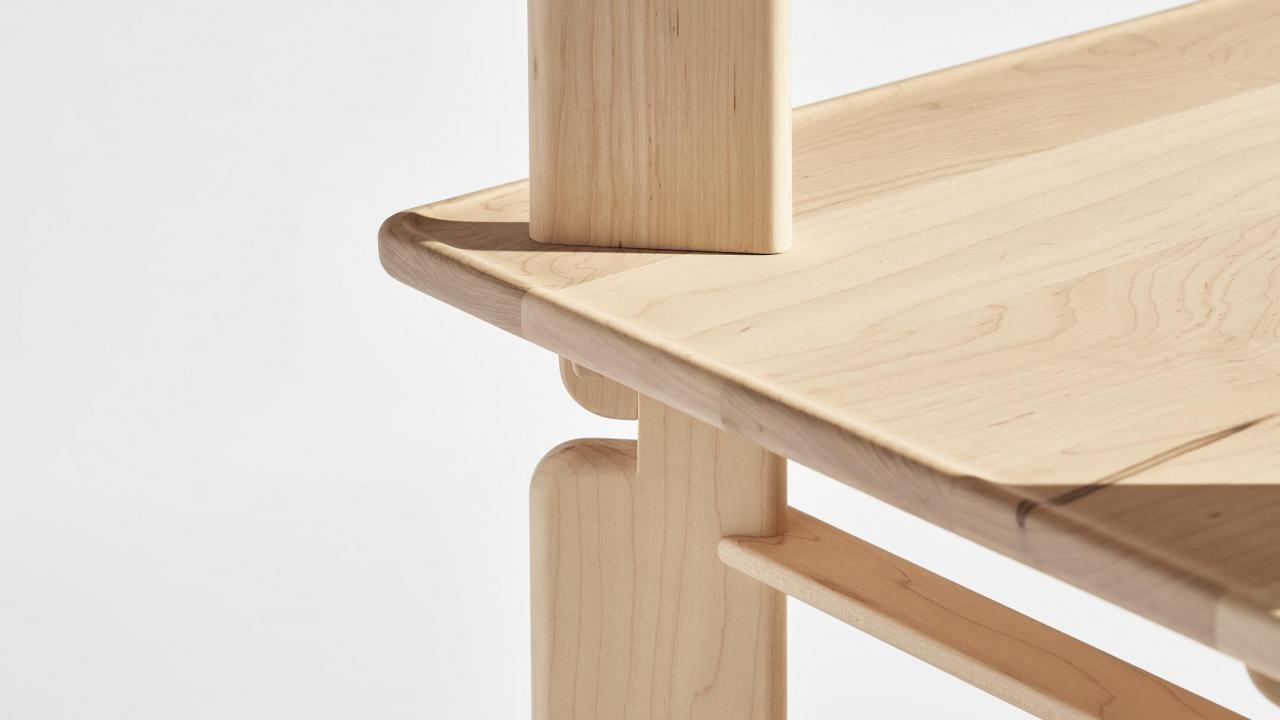
-
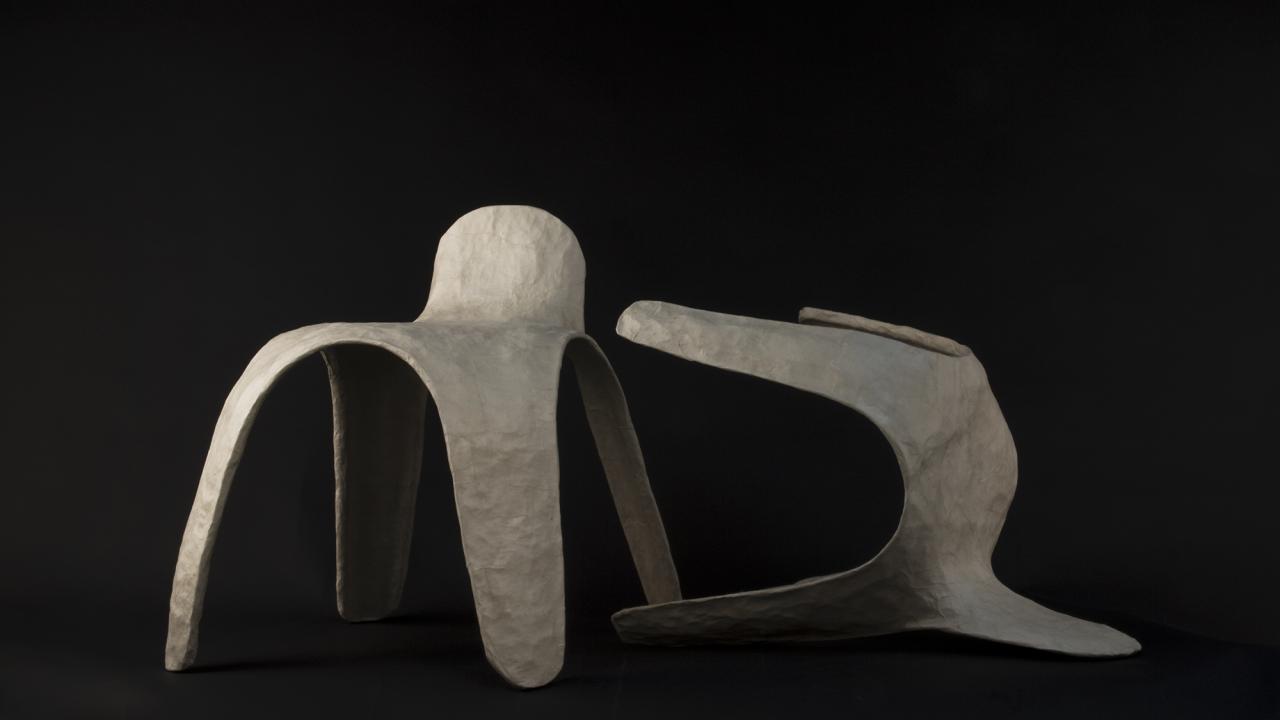
-
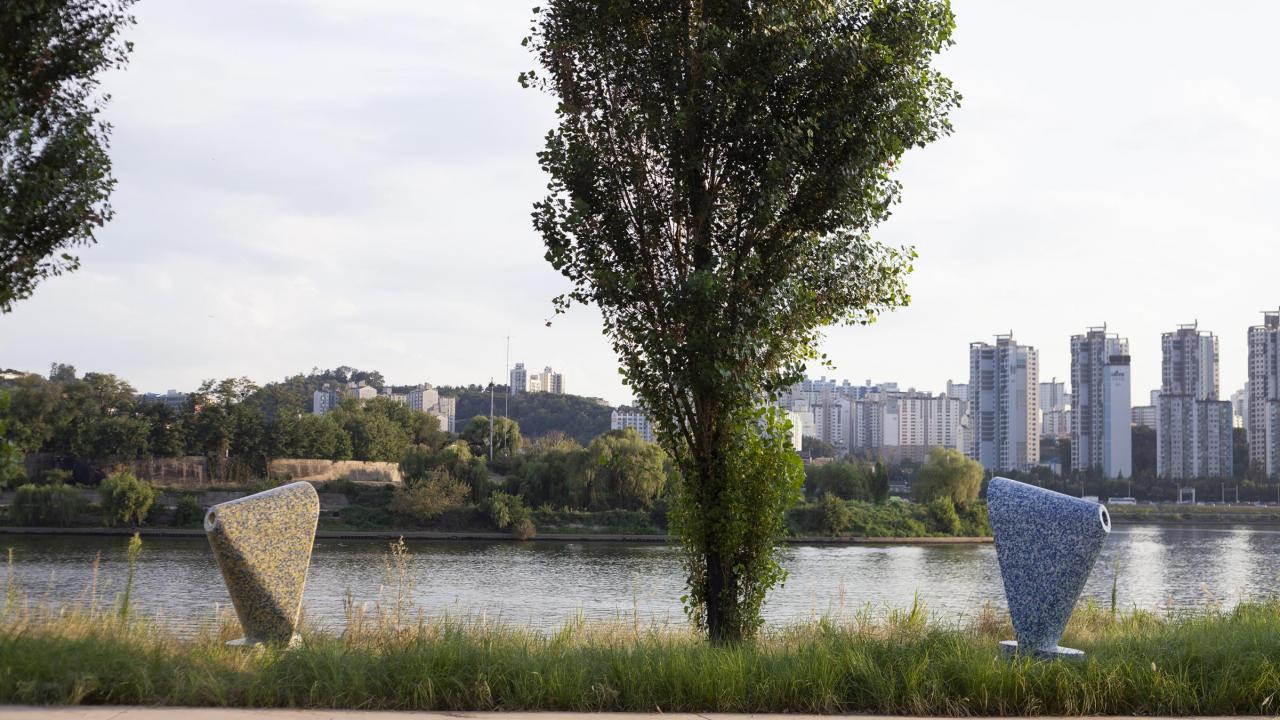
-
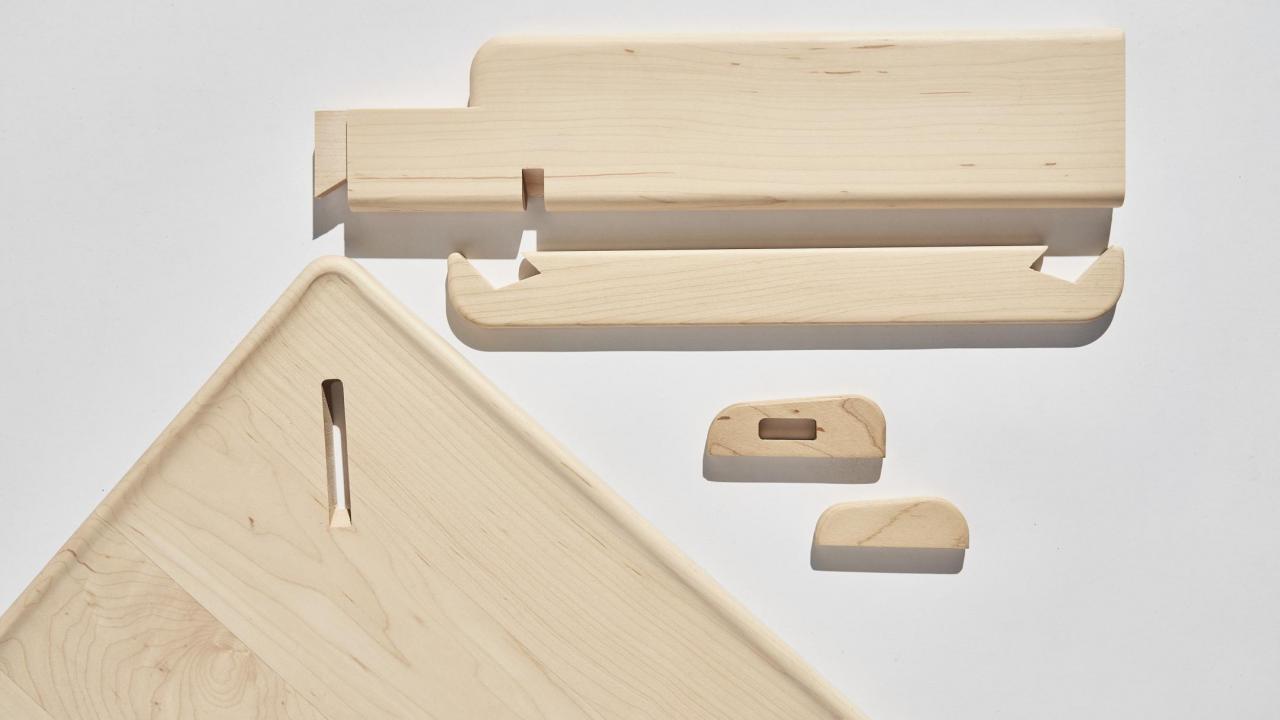
Korean designer Taiho Shin’s Seoul-based studio M.0 specialises in the development and application of new materials. For Shin, being in one of the most creatively exciting countries in Asia has provided a supportive context for his process. ‘I would describe Korea as dynamic,’ he says. ‘For decades we’ve faced many changes in our lives, economically, politically and culturally. Moving toward the future involves change. I think many Koreans are less reluctant when it comes to change than other nationalities, and some even tend to enjoy it. I think that’s what has driven creativity in Korea.’
Shin also points to the fact that Korea’s manufacturing infrastructure is more accessible than in many other countries. ‘In the heart of Seoul there are many manufacturers working directly with designers, and for me that’s very helpful. Prototyping is important in the process of designing, and it’s not only about speed but also quality.’
His recent collection, Ikare, is a series of flat-pack furniture realised in American hard maple. ‘Normally DIY furniture is made with plywood or MDF, with hardwood reserved for crafted pieces,’ he says, explaining his choice of material for the adaptable table and shelving system. The warmth of the material was critical to Shin’s aim of engaging users in the creation of the piece. ‘I wanted to give the user more chances to touch and feel and get involved. Real wood is a good way to do that.’ He designed Ikare’s primary feature, an innovative, sophisticated joint, to allow the user to build a solid, stackable table without the use of any glue. Thanks to the stability of the timber and the precision of the design and manufacturing, the pieces exude quality through simplicity, their intricacy executed seemingly effortlessly.
Fascinated by the interfaces between creator, user and environment, Shin enjoys the challenge of understanding the multifaceted impact of both his process and the resulting objects. For him, this means more time thinking about and researching a project rather than simply ‘drawing and making things’. He believes it’s this balance that defines his process of creation.
Shin continues to run his business as a ‘sort of start-up’, with experimental design and surprising materials at its core. He encourages his clients to think about the role of the materials he uses in his work and thus far, it’s an approach that has served him well.
This first appeared in Design Anthology Asia Edition